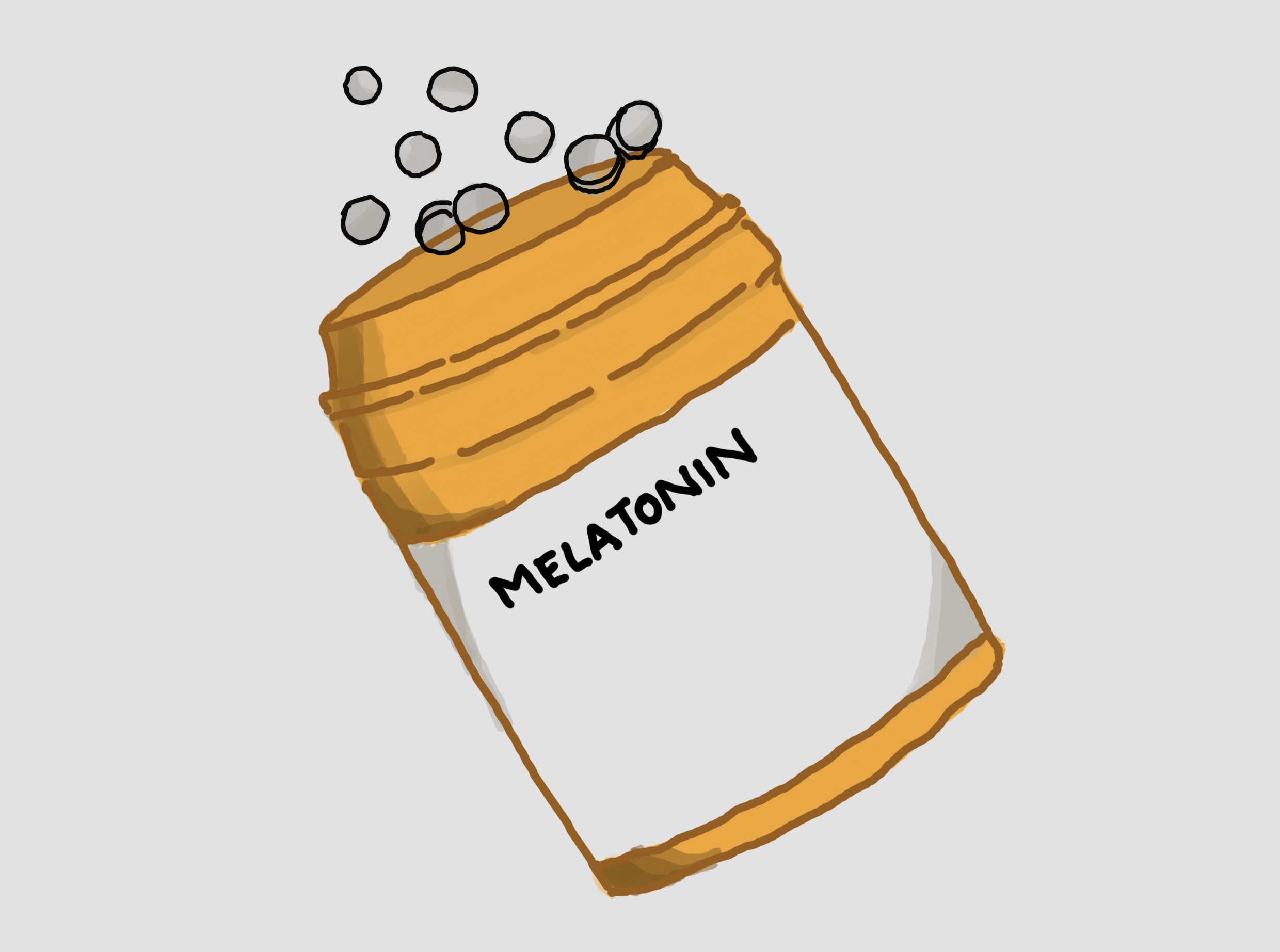Who Gets Prescribed More Sleep, France or the U.S.?

In the U.S., melatonin is as easy to buy as a pack of chewing gum. On the other side of the Atlantic Ocean, France treats melatonin as a tightly regulated substance, requiring a prescription for doses of two milligrams or more. Melatonin remains the same in both countries, only differing in dosage and medical restrictions. Why do France and the U.S. have such different approaches to regulating and consuming this sleep hormone?
Melatonin
Melatonin supplements are a synthetic version of a hormone, replicating a natural hormone produced in the pineal gland. The hormone production is influenced by light signals from the eyes, which is why exposure to bright light suppresses melatonin levels. The supplement is typically taken in the form of a pill but is also commonly available in other forms such as gummies, liquids and tablets that dissolve under the tongue.
For those struggling with sleep, melatonin can be a game-changer—but can it be overused? Dr. Abhinav Singh, Medical Director at Indiana Sleep Center, vouches for its several benefits: “Its versatility in addressing various sleep disorders makes it a valuable tool in sleep medicine.” Melatonin is commonly used to treat jet lag, insomnia and circadian rhythm sleep disorders.
While melatonin can help treat these issues, health risks can arise from improper dosage and usage. Changes in blood pressure, either positive or negative, have been reported in studies published by the National Library of Medicine about the consumption of melatonin supplements. Thus, it is important for those with cardiovascular issues to monitor their levels. Adverse effects, such as excessive daytime fatigue, have also been recorded. These side effects can be managed by adjusting the dosage, depending on the individual needs and guidance from a doctor.
The U.S.
In the U.S., melatonin is classified as a dietary supplement by the FDA, making it easily accessible anytime, anywhere. It is commonly available in doses ranging from five to 10 mg, while in European countries, typical dosages are between one and two mg with a prescription from a doctor.
But why does the U.S. allow much higher dosages than France? Because it is classified as a dietary supplement intended to promote better sleep, health risks are not as closely regulated. According to the Mayo Clinic and other medical sources, melatonin is considered safe for short-term use, but it is still recommended to take it under the guidance of a doctor.UC Davis Health suggests that, on average, the short-term use ranges between one to two months, giving enough time for an assessment of those taking melatonin to see how sleep may have improved.
Despite the general consensus from the FDA, melatonin can still cause adverse effects, such as nausea and even daytime fatigue, according to the Sleep Foundation. According to a report from JAMA, out of 25 melatonin gummies products analyzed by researchers, 22 (88%) were falsely labeled, with inaccurate declarations of melatonin dosage. This is posed as a concern due to melatonin gummies being perceived as candy by children. In response, the CDC has recommended clearer labeling to highlight the potential dangers. Changes were made by the CRN, down to the labels and the overall packaging. Additional labels that target intended age groups further highlight that melatonin supplements are not to be consumed by children.
France
France takes a more cautious approach to melatonin consumption, with much lower dosages, all of which require a prescription unless in the form of a form of food supplement. The key difference in France is that melatonin is classified as either a food supplement or a medicinal product. As a food supplement, it is not subject to the same marketing regulations by the ANSM, since it does not claim to prevent, treat or alleviate specific medical conditions.
In terms of marketing in France, regulations allow food supplements providing less than two mg per day. The Agence Nationale de Sécurité Sanitaire (ANSES) strongly urges healthcare professionals to continue reporting any potential risks to the national nutritional monitoring system.
France’s restrictions on melatonin align with European safety standards, as all countries apart of the European Union have to follow the European guidelines. Melatonin in the form of food supplements under two mg can be found at local pharmacies and is marketed to improve sleep. However, ANSES strongly advises consulting a doctor before purchasing melatonin supplements to ensure compliance with European safety guidelines and risk reports.
Looking beyond Western regulations, other countries have also implemented strict controls on melatonin. Japan banned melatonin in 2005 as it has not been deemed "safe" or in compliance with their regulations. This could be due to a lack of sufficient data to justify the marketing and sale of melatonin. However, now, with a more vast collection of knowledge regarding melatonin, in Japan, it is only attainable through a prescription between one and three mg. Despite this, it remains a very strictly controlled drug.





